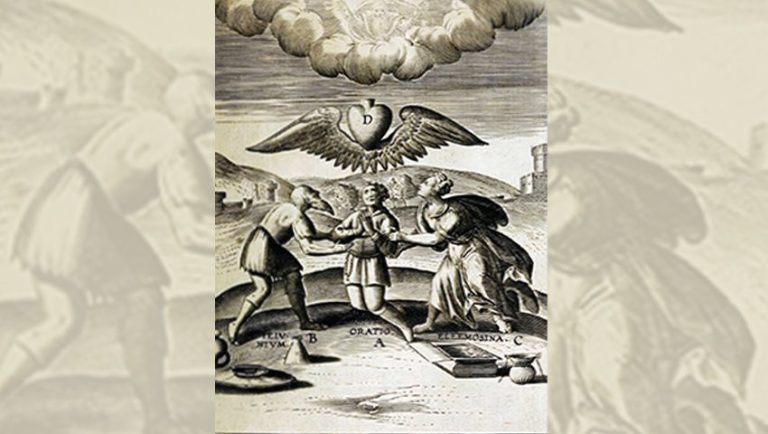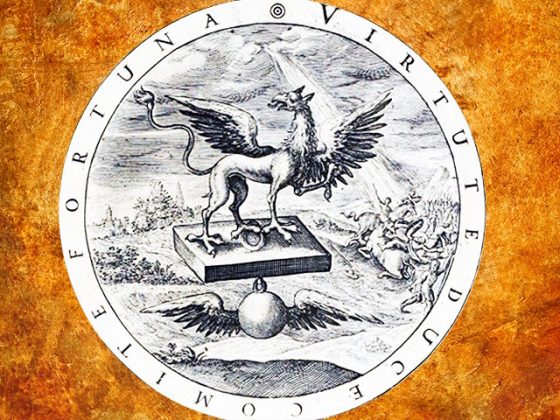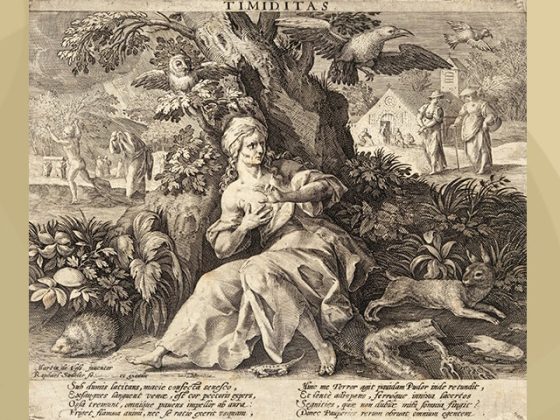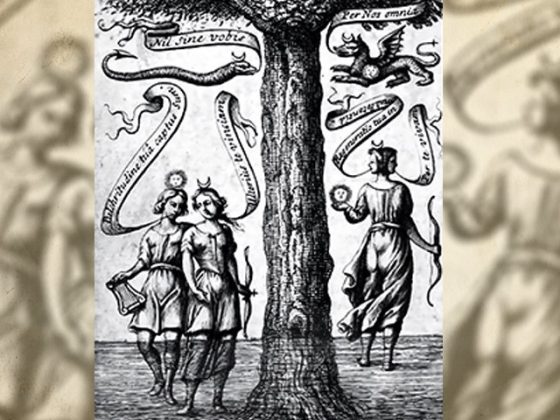Dearest friends and readers:
I send you this engraving entitled…
…THREE THINGS THAT MAKE GOD INCLINE TOWARD MERCY
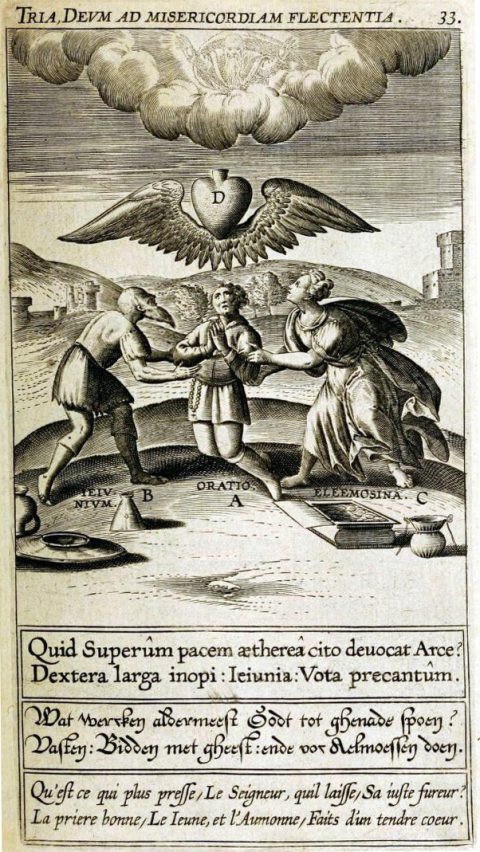
Description:
In the center a man praying, ORATIO ─ Prayer – A ─, is supported on the left by an elderly man, IEIUNIUM ─ Fasting – B ─, and on the right by a woman ELEEMOSINA ─ Almsgiving – C ─. Above, the human heart ─ D ─ is carried by the wings toward God.
At the bottom of the engraving there is a text in Latin, French and Dutch. At the top, among the clouds, is the image of the Creator.
The Latin words:
Tria, Devm ad Misericordiam Flectentia.
Quid superum pacem aetherea cito deucat Arce?
Dextera larga inopi: Ieiuna: Vota precantum.
Translation: ‘Three things that make God incline to mercy. What superior thing makes peace descend rapidly from the ethereal height? A generous right (hand) toward the poor, fasting, prayer vows.’
The French words:
Qu'est ce qui plus presse, Le Seigneur, quil laisse, sa iuste fureur?
La priere bonne, le Ieune, et l´Aumonne, Faits d´un tendre coeur.
Translation: ‘What deeds cause God to most quickly stop His righteous wrath?
Good prayer, fasting and almsgiving, done with a tender heart.'
Conclusion:
This engraving makes us reflect on the spiritual requirements that we must exercise. Gnosis emphasizes to us VOLUNTARY SUFFERINGS AND CONSCIOUS SACRIFICES as tools to nourish our longings and that, consequently, bring us closer to the Father so as to receive His mercy.
Undoubtedly, patient reader, FASTING is a way of sacrificing our alimentary mechanics and we offer that sacrifice as a proof to demonstrate to our BEING that we are capable of leaving everything behind for the love of His kingdom.
It is clear that our prayers and doctrinal practices attract to us the divine forces that set our Consciousness in motion, that take it out of its sleep, and with this we are no longer subject to the circumstances determined by our destiny.
On the other hand, the exercise of our charity toward our fellow man ─almsgiving─ opens doors for us before the GREAT LAW in such a way that the karmas that would prevent us from moving forward on our hermetic path are being eliminated. In this way, many obstacles and impediments that appear on our path will no longer be the sinister shadows that cloud our longings.
In our engraving we see an open book near the woman. This is the book of our destiny. Such a book has an open page to indicate for us that we should not be inert, waiting for the arrows of destiny to cause us wounds.
The attitude of the man in the center who has his hands in the endeavor of prayer indicates to us that anyone who is living the Hermetic Path always needs to remain in a state of interiorization. This tendency of becoming hermetic ennobles our heart, which spreads its wings to get closer to the Ancient of the Days, whom we see in the upper part of the engraving, among the clouds.
This scene reminds us of that Spanish proverb that tells us: “God helps those who help themselves.”
I now add a few quotations for reflection:
“Let us hope for what is desired, and with that, suffer whatever may happen.”
Quevedo
“Hope is the only good common to all men: those who have lost everything still possess it.”
Thales of Miletus
“Hope is always born with love.”
Cervantes
“Hope is the dream of the awakened man.”
Aristotle
“Let us deny nothing, let us affirm nothing, let us wait.”
Schopenhauer
“Hope has as much merit as patience.”
Lope de Vega
EX AEQUO ET BONO.
─‘In a fair and good way’─.
KWEN KHAN KHU


